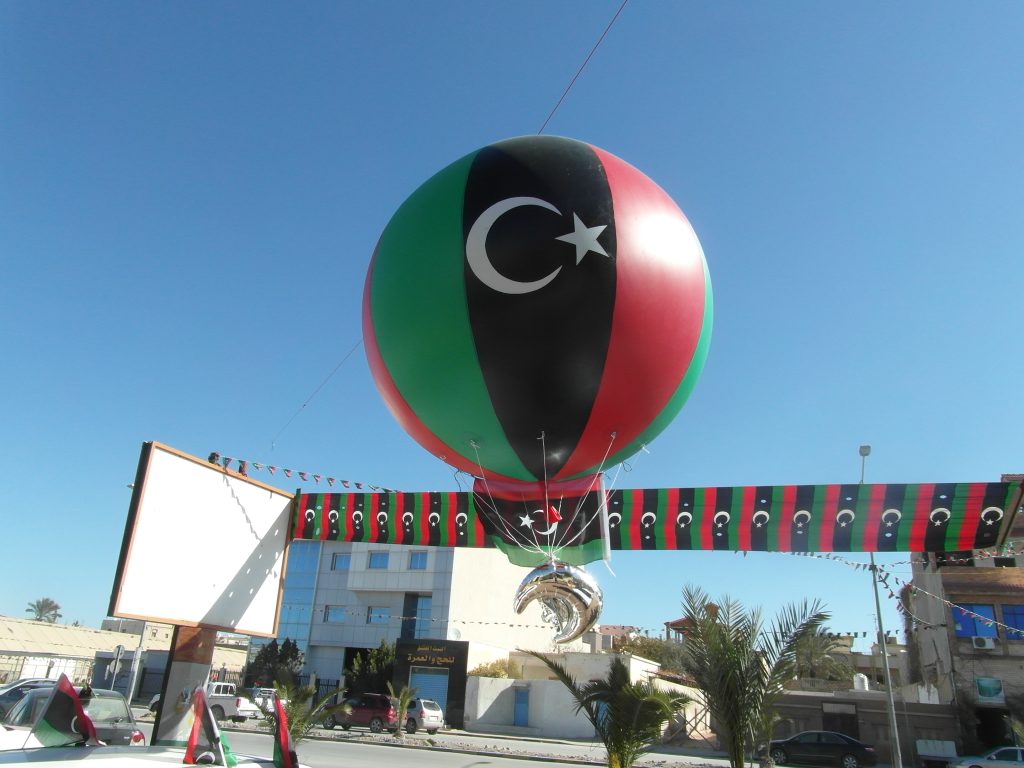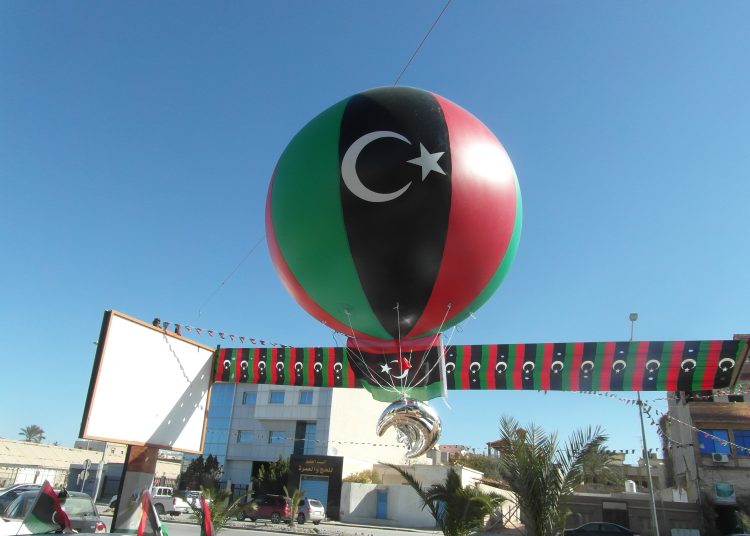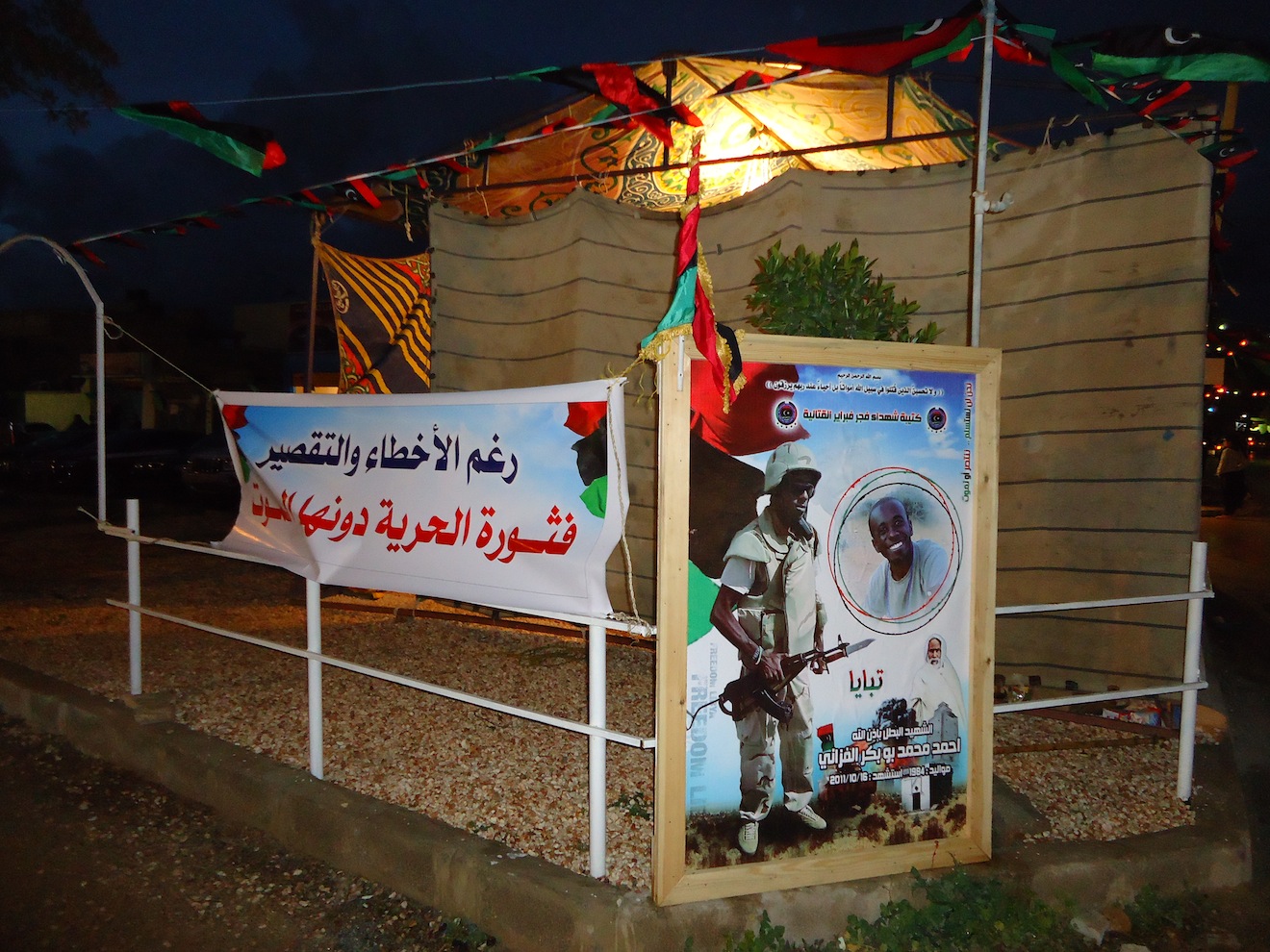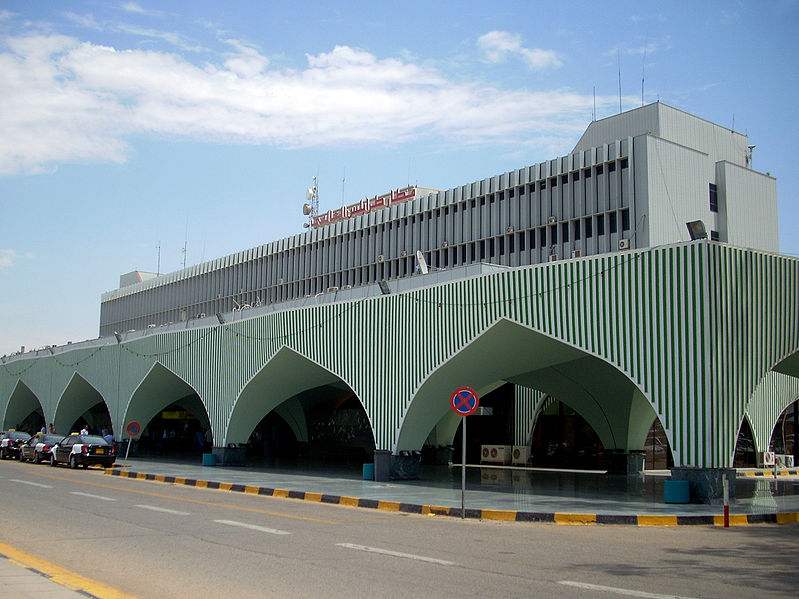By Lorianne Updike Toler.

Tripoli, 14 February 2013:
Planned country-wide demonstrations tomorrow, Friday, the proliferation of checkpoints, the cancelation of airline services and . . .[restrict]the takeover of the General National Congress (GNC) chamber by revolution amputees have Libya thinking of one thing: security.
Yet while all are focusing on the symptoms of the unrest, the cause may be more enlightening. The unrest stems in large part from frustration with a badly planned constitutional process.
The poor planning began with the writing of the Constitutional Declaration and its third amendment passed by the former Transitional National Council on 5 July 2012. The Constitutional Declaration’s main tasks for the GNC were to appoint a government and select the committee of 60 who would draft a new constitution. Amendment Three stripped the GNC of this primary purpose in specifying that the constitutional committee should be elected.
The hastily constructed amendment did not deal with several nettlesome issues, such as how two elected bodies in simultaneous operation should interact. Nor was there any constitutional timeframe specifying when elections should occur. Additionally, the NTC failed to pass the amendment with the required 2/3 majority vote of all members. This failure has further bogged the issue in an ongoing court case. The challenge, in turn, caused the GNC to delay deciding the issue until their hand was reportedly forced by federalists. This resulted in the GNC’s vote to comply with the NTC’s amendment last Wednesday.
According to GNC spokesman Omar Hemidan, the GNC is still in doubt as to how to proceed. “If the Supreme Court invalidates Amendment Three, it would also invalidate the GNC’s vote to comply,” he said.
Had the Constitutional Declaration and its amendments more thoughtfully designed a process for enacting a constitution, the frustration and unrest could have been completely pre-empted. The situation highlights the importance of “constitutional” process and the need for a “designed” process moving forward.
“Constitutional process is more important even than the content of the Constitution,” said Mohammed Ali Abdalla, head of the National Front Party and GNC member.
Congressman Abdalla is not alone in believing in the importance of constitutional process. Fellow Congressmen Ahmad Langhi and Moktar Elkatrash concur on the importance of process and, specifically, getting the process right for electing the committee of 60.
Historically, constitutional firepower has focused on content and substance rather than process. Yet the process has received increased attention recently from constitutional academics, practitioners, experts and international organisations both around the world and in Libya.
While formal studies are currently limited and inconclusive, case studies indicate that process increasingly matters to the people undergoing constitutional change. As demonstrated by the heated election-versus-selection debate and the growing cry from civil society for adoption of the “manifesto” in Libya, it is safe to say that it matters the Libyan public – indeed immensely so.
Yet what is “constitutional” process? As the NTC’s failed process design for electing the Commission of 60 demonstrates, how to choose a body to write the constitution is an important part of constitutional process. Other aspects include deciding on the level of public participation and civic education, the expertise and inclusiveness of the drafting body, any necessary training for that drafting body and the timetable for each phase. Constitutional process refers, simply, to the “how” of writing a constitution.
A “designed” constitutional process provides several advantages. According thei constitution-making manual, “Constitution-making and Reform” from experts at the international peace-building organisation Interpeace:
“It is an important way to identify the key actors and to inform the public of the objectives and the road map, including their own role. It provides guidance on procedure and timing to those in charge of the management of the process. It can minimise disputes and the respective roles of actors…The rules for the drafting and adoption of the constitution often influence the outcome of the process in terms of its legitimacy and of the orientation and content of the constitution.”
For Libya, where the public has heavily invested and is interested in the constitution-making process, designing a constitutional roadmap will decrease civic unrest. On a more long-term basis, legitimised constitutions (the goal of a designed process) are likely to increase voluntary compliance with the law and, with it, security and peace. Moreover, stabilised constitutional systems will encourage economic investment in Libya.
If the country were able to intelligently design its constitutional process, it would be one of the first in international constitutional history. Thus far, only Rwanda (2003) and Tunisia (in-process) have been able to independently pre-design their processes and actually follow the plan. In Rwanda, the Constitutional Commission adopted an Action Plan involving civic education, public consultation, the writing of the constitutional text and a referendum after the constitution was approved by parliament. As the result of this carefully structured plan, 90 percent of the electorate voted, with 93 percent of those voting approving the constitution.
In Tunisia’s current process, its design was initiated by the Ben Achour Commission. This Commission combined both the High Commission for Political Reform, a nominated body of law professors from each of the country’s law faculties, and a body of civil society organisations and political parties. The Ben Achour Commission operated as a quasi-legislative body to draft an electoral law for a constituent assembly. The seamlessness in constitutional design was accomplished because of the involvement of the Ennahdha Party in the Ben Achour Commission that then gained 40 percent of the seats in the Constituent Assembly and formed the coalition currently in power. An influential Ennahdha Party member serves as the repertoire general and de facto leader of the committee coordinating the six independent committees drafting the various portions of the Tunisian Constitution. They operate on a coordinated but flexible time schedule to keep the process on track.
Yet in most cases of constitutional process design, it is imposed by third-party actors, such as the US in Iraq (2005) or the UN in Bosnia (2006). Despite plans to involve public input, such processes are often driven by external needs, such as that for the US to withdraw security forces in Iraq. It can be rushed and often fails to accommodate domestic needs and the cardinal principles of constitutional process –inclusivity, transparency and public participation.
Despite its clear benefits, the complexity of agreeing on a design is an initial barrier that is often surmountable only where international actors have the upper hand. Additionally, two related challenges can prevent the implementation of process design. First, the ability for constitutional actors to change their plans or those of experts often derails or destroys process design. Second, there is no external enforcement mechanism to ensure designs are followed.
Libya can overcome these challenges by doing the following:
1) Develop a coordinating body between local and international experts, civil society and the GNC, and constitution committee members (when elected) that can design a constitutional roadmap. This should be driven by civil society;
2) Split rule-making and substantive constitution-writing power. This may be done between the coordinating body and the constitution committee, or between the GNC and the constitution committee. Without a legal division of power, however, any process design will likely follow those of other countries and quickly derail;
3) Identify an enforcement mechanism. Again, this could be the above coordinating body of the GNC in conjunction with the media or the GNC itself, but the enforcement mechanism should be designed concurrent to the process.
Substantively, there is already a guidepost in place for a coordinating body to use as a set of principles in developing its design—the “manifesto” now supported by over 500 civil society organisations. The next article in this mini-series will discuss how to implement the above recommendations in developing a roadmap that conforms, as far as possible, with the “manifesto.”
This is the thirteenth editorial in a series on constitutionalism authored by constitutional legal historian Lorianne Updike Toler, founding president of The Constitutional Sources Project and Lorianne Updike Toler Consulting.
Danielle Tomson contributed to this article.
[/restrict]











